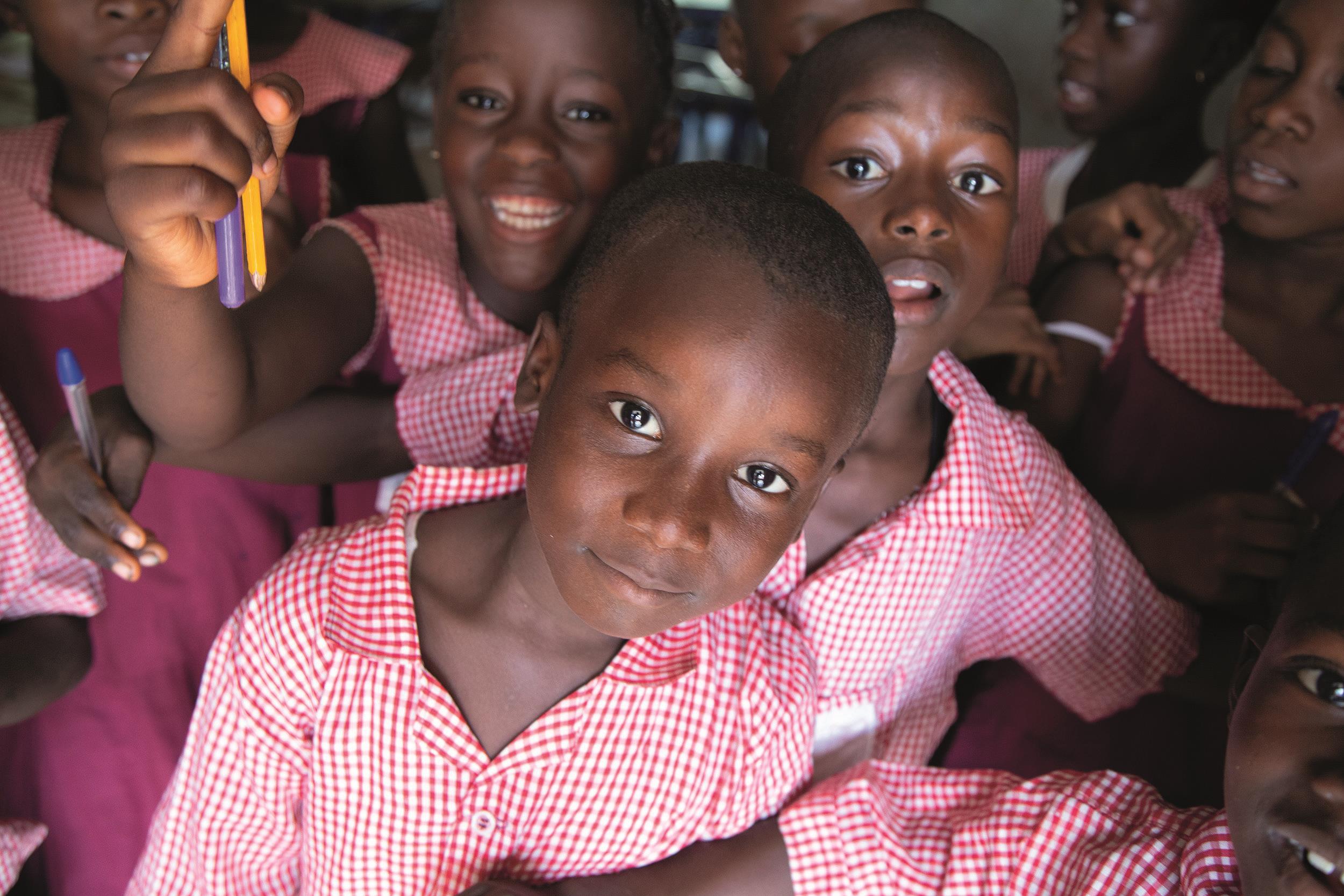AVSI in Sierra Leone
- Freetown Hq Office 5G off King Harman road, Brookefields
- Bo Field Office Former SLDC Compound,
Off Bo-Tiamah Highway,
Reservation, Bo
Since 1990, AVSI has been working in Sierra Leone to promote child protection, ensure quality education, and support the socio-economic development of vulnerable communities.
AVSI began its operations in Sierra Leone in late 1990, partnering with the local NGO Family Homes Movement (FHM). The intervention was driven by the country’s dire socio-political situation, marked by the onset of a brutal civil war. In this context, AVSI initially focused on supporting vulnerable children and former child soldiers, aiming to facilitate their reintegration into society through protection and care initiatives.
Following the end of the civil war, AVSI implemented a range of programs to support the reintegration of former child soldiers. These included the establishment of reception centers, provision of psychological support, and promotion of social reintegration activities.
One of AVSI’s key achievements was the construction of the Holy Family School in Mayenkineh, co-funded by the Italian Ministry of Foreign Affairs and private donors.
In the education sector, AVSI has also trained teachers and supported primary and secondary schools, providing access to quality education for many students.
In response to emergencies such as the Ebola outbreak and natural disasters, AVSI distributed essential supplies, led awareness campaigns, and offered psychosocial support and rehabilitation services to vulnerable families.
The organization also developed vocational training programs for disadvantaged youth, including young people with disabilities, and provided career counselling to improve their employment prospects.
Sierra leone: between war, epidemics and persistent poverty
Sierra Leone’s civil war, which lasted from 1991 to 2002, claimed around 50,000 lives and displaced more than 2 million people. The conflict, driven by corruption, poverty, youth unemployment, and the struggle over diamond resources, left the country’s economy in ruins and its infrastructure and social services devastated. The years that followed were marked by efforts toward reconstruction, reconciliation, and economic recovery.
In 2014, the country was hit by another major crisis: the Ebola epidemic. Between 2014 and 2016, Sierra Leone recorded more than 14,000 cases and over 3,900 deaths, making it one of the worst public health emergencies in its history. The outbreak overwhelmed the already fragile health system and deeply affected communities — impacts that are still being felt today.
Currently, Sierra Leone continues to face widespread poverty, food insecurity, and limited access to essential services.
With a GDP per capita of $757.9 and a poverty rate of 59.2%, the country is experiencing an inflation rate of 54%, which has drastically increased the cost of food, fuel, and transportation.
Around 82% of the population is food insecure, while only 16% have access to adequate sanitation.
The education system remains under-resourced, and maternal and child mortality rates are among the highest in the world. Additionally, 38% of children are involved in hazardous work and 25% are victims of violence.
In this complex context, AVSI’s activities have expanded to include child protection, education, vocational training, and access to energy and clean cooking solutions.
Key Projects
Promoting Equity and Access to Quality Education
In partnership with the Institute for Governance Reform (IGR) and funded by the European Union, AVSI is implementing a project to strengthen civil society organizations (CSOs) in the education sector (Feb 2023 – July 2025). The initiative is active in Falaba, Karene, Moyamba, Tonkolili, and Western Area Rural.
Working with 200 schools, 15 CSOs, 113 staff members, and 32 district authorities, the project encourages CSOs to actively engage with institutions on education policy at both community and national levels. It also builds their capacity to monitor policy implementation and advocate for more inclusive, accountable, and transparent education systems.
Distance Support Program
For over 20 years, AVSI’s Distance Support Program has enabled 801 children (401 girls, 400 boys) to access and complete their education. Most of the supported children attend Holy Family Schools in Madina-Tabai and Mayenkineh, which serve the Lokoh Town and Calaba Town communities. The school in Mayenkineh, built through AVSI’s efforts, is managed by FHM. Children are supported from preschool to secondary education in Freetown, and at the primary level in Madina-Tabai. In addition to covering school fees and supplies, AVSI offers close, continuous monitoring of each child's progress and works to ensure their overall well-being within the community.
Improved and Clean Cookstove Project
In collaboration with EnDev, AVSI is implementing awareness and behavior change campaigns to promote the adoption of improved cookstoves, contributing to environmental sustainability and better living conditions in vulnerable communities. The project runs from November 2023 to June 2025 in Bo, Pujehun, Kenema, and Western Area (Urban and Rural), targeting 1.2 million rural households.
The initiative includes technical training for local producers, provision of starter kits for improved cookstove (ICS) production, and business development support. It also empowers women, youth, and persons with disabilities through four community-led projects and supports 15 small and medium-sized enterprises specializing in ICS, helping them grow through training, equipment distribution, and marketing support.
Transformational Energy Use for Sierra Leone – Phase 1
With funding from the European Union and the German Federal Ministry for Economic Cooperation and Development (BMZ), and in collaboration with EnDev, AVSI launched the TEUSL project to improve energy access and stimulate local economies in Bo, Kenema, and Kono (March 2024 – April 2025).
The project promotes renewable energy solutions — particularly solar technologies — to boost productivity and reduce energy poverty. It also facilitates access to finance for small businesses and farmers through Village Savings and Loan Associations (VSLAs). Additionally, AVSI raises awareness of the benefits of clean energy, helping vulnerable communities achieve greater resilience and development through sustainable energy use.





